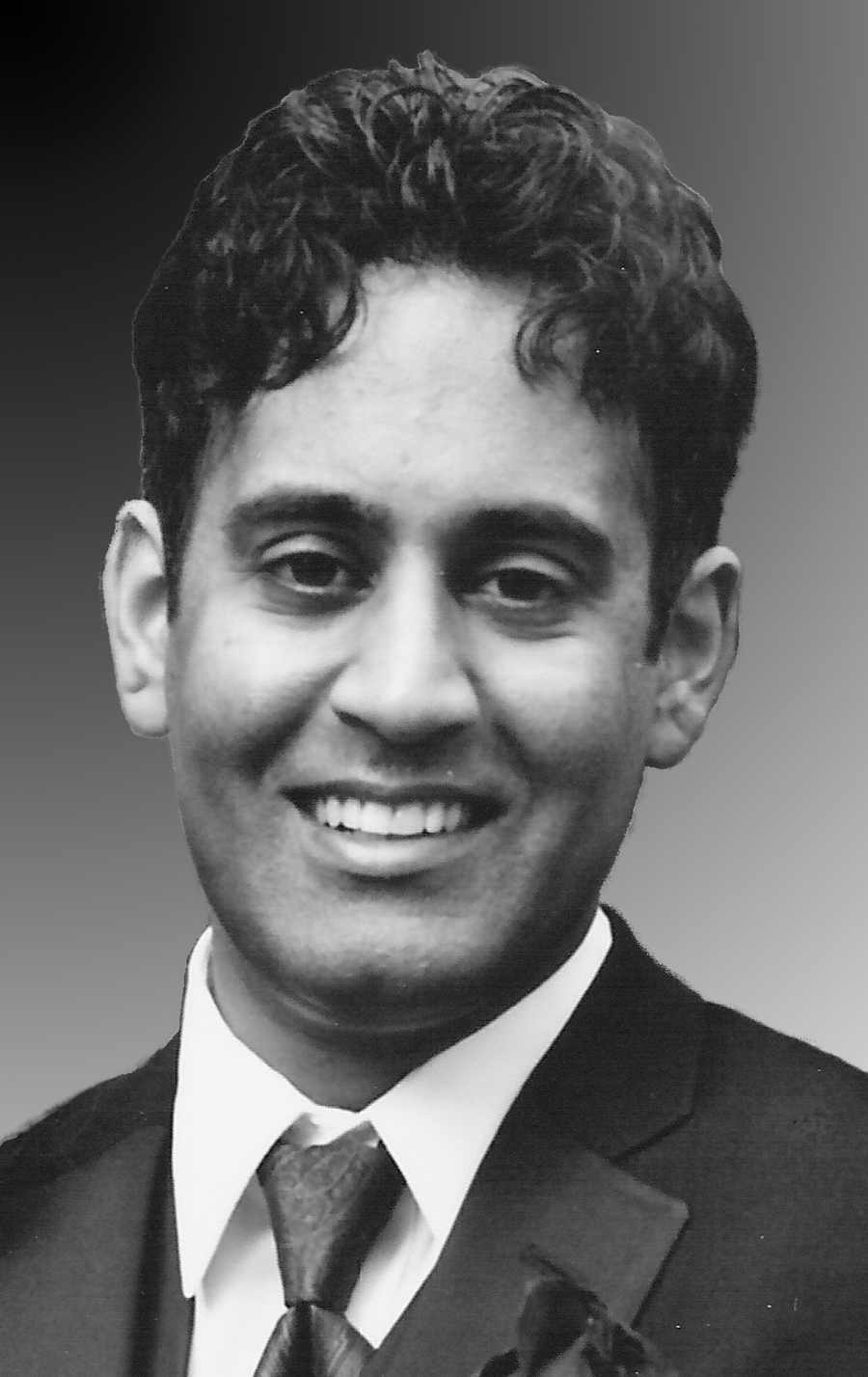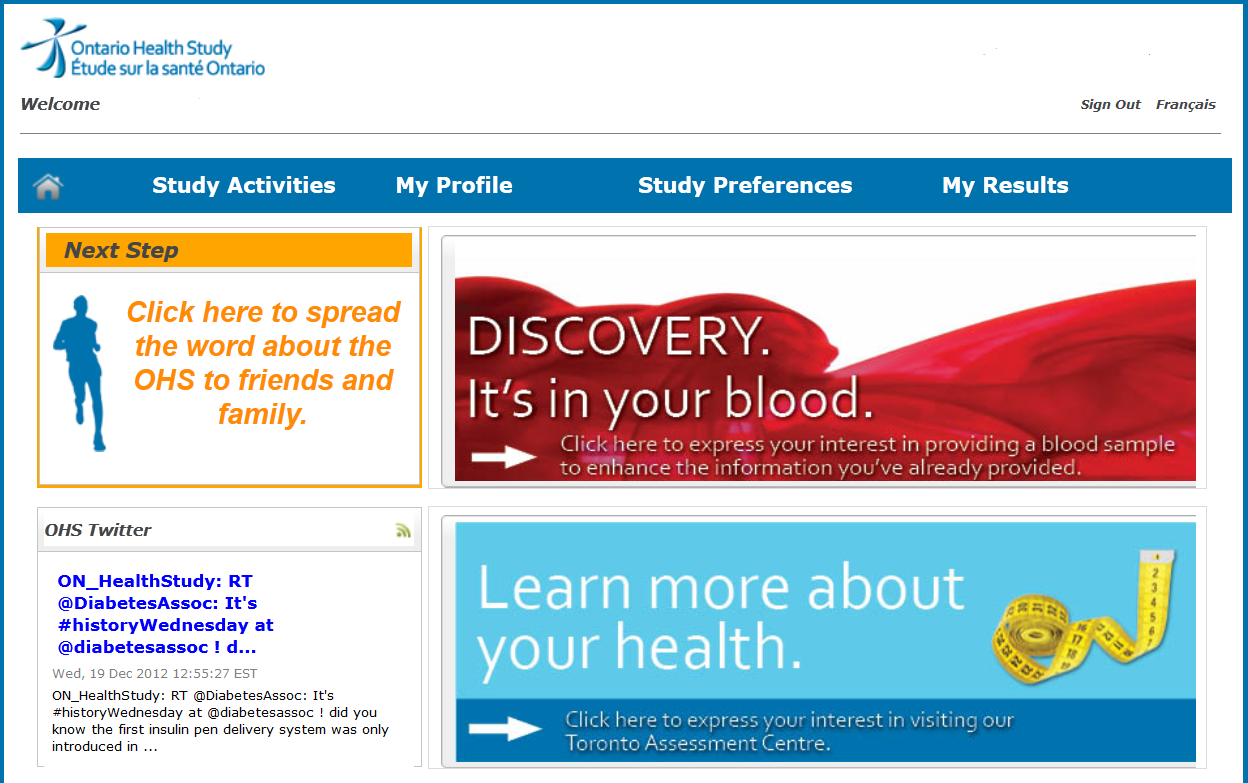OHS Insider #6
Dec 20, 2012 // OHS Newsletter
Discovery…It’s In Your Blood
It is with great excitement that we announce the launch of the Ontario Health Study’s Blood Collection Program! You have already made a great contribution to health research by joining the Study and completing our first online health questionnaire. Now, if you also provide a blood sample to the OHS, researchers will be able to study the information you’ve already provided in connection with your blood sample. This will give them even greater insight into the various factors that influence health and quality of life.
In order to make it possible for all OHS participants to easily provide a blood sample, we have partnered with LifeLabs® Medical Laboratory Services. This partnership makes it easy for OHS participants to visit one of LifeLabs’ 120 locations throughout the province to provide a sample at their convenience. To learn more about the Study’s Blood Collection Program and to locate a LifeLabs facility near you, please visit the OHS website by clicking here.
And if you’re curious about what happens to your blood sample after you provide it, check out this video about the OHS Blood Collection Program Robot!
The Latest on the OHS
As of mid-December, more than 226,000 people have completed the Ontario Health Study’s online questionnaire! Our first Assessment Centre is also a success with more than 1,000 participants being seen since the doors opened on July 5th! To learn more about the Study’s Assessment Centre, please visit the OHS website by clicking here.
Excited about the success of the Study and interested in helping it grow even more? To become an OHS Community Champion and help us to recruit more people into the Study, please visit our Community page.
News You Need to Know
Express Your Interest in Participating in the Assessment Centre or Blood Collection Program
Available immediately to all Study participants is the ability to express your interest in either visiting the OHS Assessment Centre or providing a blood sample. You can do so by simply logging into your OHS homepage, and clicking the corresponding button, such as the images you see below. Express your interest today!
Please stay in touch
Please remember to log in to your OHS homepage and update your contact information (address, phone, email) if it has changed since you joined the Study. If you’ve provided information for contacts outside your household (whom we contact only if our efforts to contact you prove unsuccessful), please update that information as well. Thank you!
Did you know...?
Providing the OHS with your Health card number improves the Study because it allows us to link information you provide in your questionnaire with administrative health data already being collected, such as the fact that you had a mammogram or prostate exam. This information helps researchers looking into things like the effectiveness of screening programs or “hot spots” across the province where certain diseases are more common. It also means we’ll get a more accurate overall picture of your health and that, ultimately, we’ll be able to reduce the number of questions we ask you on our questionnaires.
Why I Take Part in the OHS: Doug
|
|
I am a firm believer that genetics is only part of the picture when health issues affect a person. I believe the environment plays a major role in our health, whether it is direct (how close are we to the contaminating source?) vs. indirect (how close is our food source to the source of contaminant?). Anecdotally, over the years we have witnessed an increase in asthma, peanut allergies and other inflictions that were extremely rare in the 1960 and ’70s when I was young. What is the cause? Without this type of study the answer will never be found. I am confident that the Ontario Health Study follows all federal and provincial privacy laws protecting my individual rights and privacy while providing the medical and scientific community with valuable statistical information that might improve our quality of life and maybe provide insights on where communities should be built in relation to industry or geographic locations. If you haven’t signed up, please do so. The results might help someone close to you now or in the future. |
Meet an OHS researcher: Dr. Ravi Retnakaran
Ravi Retnakaran is an associate professor in the division of Endocrinology and Metabolism at the University of Toronto and a clinician-scientist at the Leadership Sinai Centre for Diabetes at Mount Sinai Hospital.
To read Dr. Retnakaran’s biography, visit our website by clicking here. |
 |
The Ontario Health Study wishes you a Happy Holiday season and a wonderful new year.


